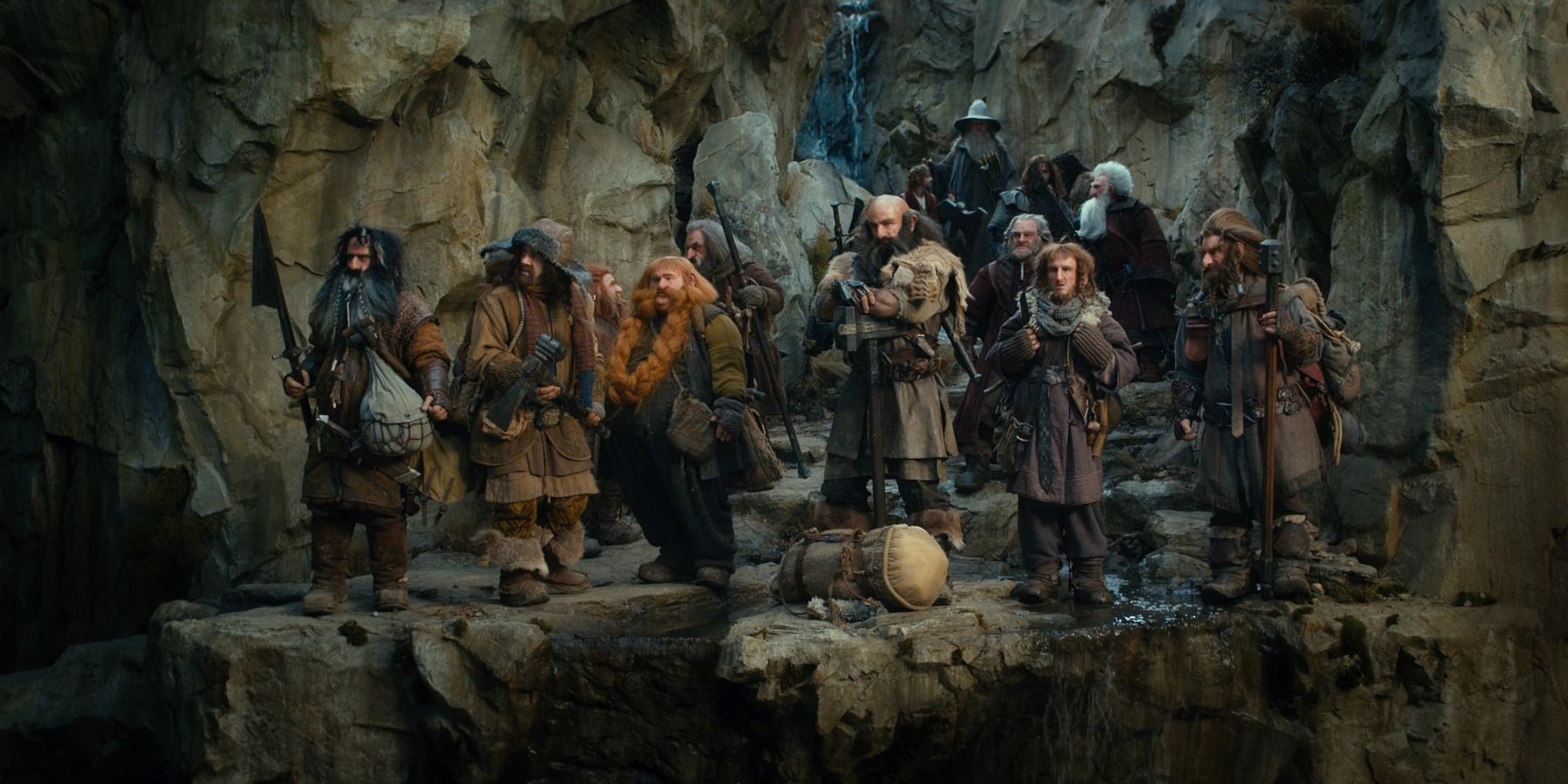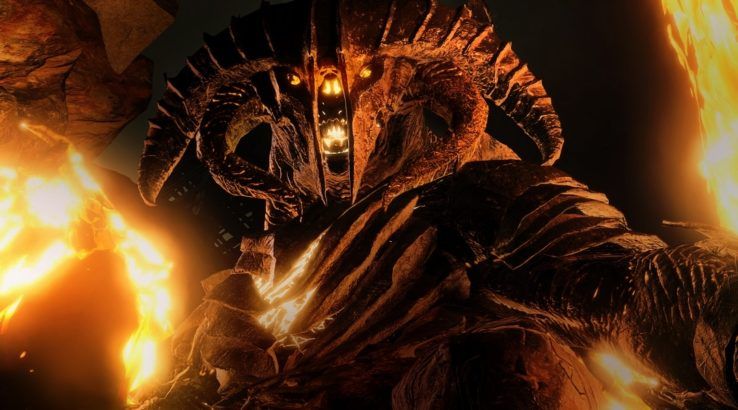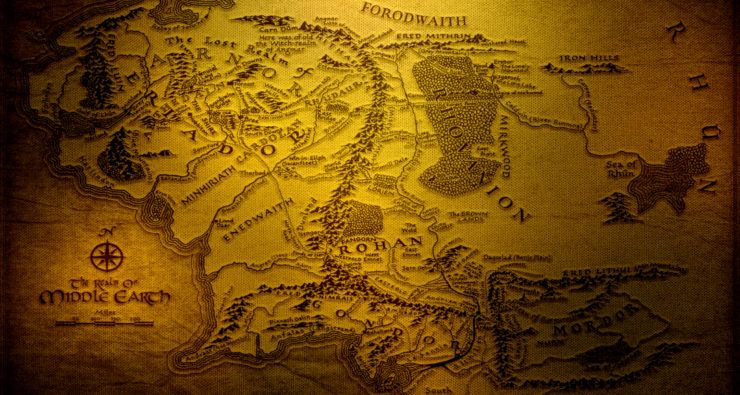All the creatures in Middle Earth have the desire to make things, to build things, to create and to expand. For the elves it is beautiful landscapes, like Rivendell and Lothlorien, or weaponry (like Glamdring and Orchrist). For the Dwarves it is their vast halls, and the armor that they weave out of the precious and rich elements deep underground (like Mirthril chain mail). For the hobbits it is as simple as brewing ale and growing pipe-weed to smoke.But where did they get this shared love of creation from?
According to the Silmarillion, it stems from the first beings who came long before Middle Earth, the Ainur, who got it from Eru Illuvatar before them. Among these beings, Illuvatar is the most divine creator. He brought about everything that exists within Tolkein's universe, and the elves and men are known as his children. He carefully designed them to exist in peace, and to thrive in the home that he had created for them. But in passing down his gift of creation to the things he created, Eru couldn’t have foreseen that they might choose to make things for selfish or abominable reasons, like Melkor did when he created the Balrogs to live in the shadows. When Illuvatar then hears of Aule, one of his Ainur, playing god and creating life, he fears the worst, and goes wrathfully to punish this transgression.
When Aule first creates the dwarves, Illuvatar is angry, in part because he feels that Aule is trying to usurp Illuvatar’s own power of creation by bringing life into being without permission. In another part, it is because he thinks it is cruel to bring these creatures into being with no thought for how they might live fulfilling lives. He accuses Aule:
“The creatures of they hand and mind can live only by that being, moving only when thou thinkest to move them, and if thy thought be elsewhere, standing idle. Is that thy desire?”
Illuvatar is a benevolent creator, who believes in the magic and wonder of the universe that he brought about. When he created the Ainur, he created them with tenderness and respect, wishing for them to grow and to thrive and to find joys of their own. He is therefore hurt and betrayed at the idea that Aule might have brought the dwarves into life simply for his own amusement, as if they were toys to be played with and then cast aside once they had no more entertainment.
Illuvatar has seen the cruel spirits that Melkor has brought into being. The most notable examples at this point the Balrogs, who are shadow and smoke, and can do nothing for themselves but act upon the malice and hate of their master. Upon seeing the dwarves, which were created without his knowledge or permission, Illuvatar fears that Aule has done the same.
But Aule explains that he simply watched the joy and the harmony that Illuvatar poured forth into creating the Ainur, and wanted to replicate it in beings of his own, like a child imitating something they have seen their father do. He explains that he "did not desire such lordship," and simply wanted to show them the beauty of the world. Rather than for his own ends, Aule created the dwarves to honor Illuvatar, and to admire the incredible world that he is forming. And despite how he loves them, he is even willing to undo them. He knows he has done wrong, and he never intentionally meant to defy or compete with Eru’s will:
Then Aule took up a great hammer to smite the Dwarves; and he wept. But Illuvatar had compassion upon Aule and his desire, because of his humility; and the dwarves shrank from the hammer and were afraid, and they bowed down their heads to beg for mercy. And the voice of Illuvatar said to Aule, "Thy offer I accepted even as it was made. Dost thou not see that these things have a life of their own, and speak with their own voices? Else they would not have flinched from thy blow, nor from any command of thy will." Then Aule cast down his hammer and was glad, and he gave thanks to Illuvatar, saying “May Eru bless my work and amend it!
In realizing that Aule has created sentient life, with their own thoughts, feelings and fears, who are capable of growing and changing and achieving wonderful things, Illuvatar sees proof that Aule didn’t create them out of greed or lust for power like Melkor. In seeing the dwarves' reaction, Eru sees that he was wrong before, and that Aule does not simply want an army of beings to do his bidding. Instead, Aule was motivated by a purer curiosity to see them take shape, and shape the world themselves.
Illuvatar is able to forgive Aule his transgression, because he understands the reason behind it. No punishment needs to be doled out, because Aule's motivations were not corrupt. Eru knows that he doesn’t need to worry about the dwarves becoming twisted and malcontent like Melkor’s creations, because they have a peaceful and benevolent father watching over them in Aule. He therefore lets Aule keep his creations, but bids him to tuck them away somewhere safe, and only awaken them once the world that is still forming is ready for them to inhabit.



